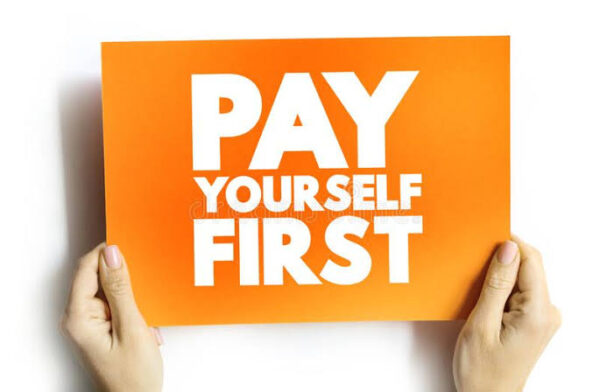Last updated Apr. 26, 2023 by Peter Jakes
For many people, financial freedom- having enough savings, investments, and cash to afford the lifestyle they desire for themselves and their families—is an important life goal. Not everyone wants to live paycheck to paycheck and die a salary earner.
Being financially free also means growing a nest egg allowing you to retire or pursue any career you want—without being driven by the need to earn a certain amount each year.
Unfortunately, far too many people do not achieve financial independence.
Even in the absence of occasional financial emergencies, accumulating debt due to overspending is a constant burden that prevents them from reaching their goals.
When a major disaster, such as a hurricane, earthquake, or pandemic, completely disrupts all plans, additional gaps in safety nets are exposed.
Everyone wants to gain financial freedom. However, only a few people end up becoming financially free. Therefore, despite all the hard work deployed by some people, their chances of achieving success may be limited.
Good Read: Top 20 Budgeting and Financial Blogs You Should Be Following
Easy Steps To Achieve Financial Freedom Fast
1. Analyze Your Current Financial Status

Before thinking about the future of accomplishing success, check your current financial situation. You cannot make great plans to achieve financial freedom when your financial status is in a deep mess.
You must check if you are in debt, your current daily income, and more. These analyses will lay a stronger foundation for your next big step.
Keep in mind that you must start with a new mindset if you want to gain financial freedom within a short time. First, however, you should correct your past financial mistakes to ensure they don’t disrupt your future plans.
After the analyses, you realize that your recurring debt may serve as a barrier in the future. Therefore, find alternative means to clear your debt. An example is finding cheap ways to cut your living expenses.
When you are currently spending more money than your daily come, you may never experience financial freedom shortly.
You must take the right steps to actualize your financial freedom with time.
2. Look at Money Positively
You can’t achieve financial independence unless you know where you’re starting from.
Looking at how much debt you have, how much savings you lack, and how much money you require can be depressing. However, this is an important step in the right direction.
Make a list of all your debts, including your mortgage, student loans, car loan, credit cards, and any other debt you may have.
Don’t forget to include any money you’ve borrowed from family or friends over the years. Take a deep breath now. And yet another. Then add all of the numbers together.
What is the Total amount of your debt?
If it’s a large number, don’t worry; I’ll explain how to pay it off later in this article. Congratulations if it’s a small number! Please leave your financial freedom tips in the comments section below.
Next, consider all of the money you’ve saved.
Make a list of all your savings, including savings accounts, stocks, stock-matching programs, company retirement-matching programs, and retirement plans.
Then, include any recurring monthly payments you receive, such as your salary or side hustle earnings.
Remember these figures as you review your next steps to achieve financial freedom.
3. Set Clear Financial Goals

You must abandon your previous goals and plans if you want financial freedom. However, making new life goals will help you get closer to financial independence.
What does financial freedom mean to you? First, everyone wants to make enough money to spend, but that’s an overly broad goal.
It would be best if you were specific about the amounts and deadlines. The more detailed and precise your goals, the more likely you are to achieve them.
Your financial objectives could be:
- What your lifestyle requires
- How much should you have in your bank account to make that possible
- What age is the deadline to save that amount
Then, working backward from your deadline to your current age, regularly set financial mileposts between the two dates.
Carefully note all amounts and deadlines, and place the goal sheet at the front of your financial binder.
You must be specific when setting your goals. Point out your past mistakes and ensure they do not contribute to your new goals.
How Do You Go About Achieving your new Financial goal?
To begin, you must devote sufficient time to analyzing the outcome of your current financial situation. This analysis’ findings should help you decide whether to add or subtract points from your goals.
List your Financial goals and Determine how you intend to achieve them.
One of the details you should include here is the exact amount you expect to own by the end of the week, month, or even year. For example, your financial goal may be paying off your debts and traveling the world.
Clearly describe the steps to take in deploying and realizing your goals. You must include side hustles, careers, and businesses to achieve your financial goals. Then, put your goals into action.
Writing down your objectives may appear to be a simple step. However, achieving the financial goal will be more difficult than it seems.
The strategies you use to achieve your goals will determine how quickly you reach financial freedom. For example, if you want to be a freelance writer, you must take immediate action to ensure you get there as soon as possible.
Develop the ability to resist setbacks and obstruct activities preventing you from reaching your goals. For example, you’ve started your journey to financial freedom as soon as you start implementing your plans.
4. Set Your Budget
If you fail to make a good financial budget early in your career, you can never reach a great milestone in your life. Good budgeting starts with developing a budgeting mindset, and there are easy steps to cultivating a budgeting mindset.
Your budget should serve as a guide to limit your unnecessary expenses and improve your ability to attain financial freedom.
The first goal is to make a budget; another goal is to stick to it. Everyone loves to party and enjoy life without any resistance.
Sometimes, this lifestyle can make people spend beyond their limits and forget their budgets. However, if you want to reach your financial goals, you must set your goals and stick to them.
If you already have, Trim Your Budget
Creating a budget and tracking expenses should quickly reveal whether you have enough money to continue spending at your current level.
If not, you’ll need to cut costs somewhere, and the obvious place to start is with unused or redundant services, such as multiple subscriptions to streaming services that you rarely use.
People’s budgets are full of garbage, so you must strive to live within your means.
Saving money does not always imply foregoing your morning latte or gym membership.
Instead, people should consider major lifestyle changes that could benefit their financial situation rather than minor expenses.
Selling your home or purchasing a cheap, used car may appear to be significant sacrifices. It may be worthwhile, however, if it contributes to your ultimate goal of long-term financial independence.
If you get pushback from family or friends about changing your lifestyle, consider who you spend your time with. Then, surround yourself with people who share your values.
5. Keep Track of Your Spending
Tracking your spending is an important step toward financial independence.
You can use a tool like Mint to track your spending, which categories you’ve overspent in, how much money is in each of your accounts, and how much debt you have.
Another cool feature of Mint is the ability to set goals directly from the dashboard. So you can keep track of your goals and know exactly when you should expect to reach them based on how much money you put in.
As a result, you’ll be held accountable and reminded to keep putting money towards it for yourself.
I was able to save some extra money towards my new wedding fund goal after using one of these best free personal finance software for one month.
The spending software assisted me in staying focused on my goal and pushed me to generate more passive income to meet my financial milestones.
Go ahead and Formulate a Spending Plan
A spending plan, or a budget, outlines how you intend to spend your money each month.
Consider whether the items you list will bring you closer to your financial goals as you create this document. You must constantly work on and update this your spending plan.
People used to be limited to using a pencil and paper or a spreadsheet for budgeting, but now numerous options make budgeting easier.
The apps you use to track your expenses can also generate suggested budgets based on your spending.
Using an app can transform a time-consuming process into something quick and simple.
If you’re unsure where to begin, you can make a list of regular bills and their due dates and compare that list to your paychecks. Then, determine what you will spend each paycheck on.
6. Pay Yourself First

You’ve probably heard the phrase “pay yourself first.” But, in case you haven’t heard, “pay yourself first” means putting money in your savings account before paying anything else, such as bills.
And paying yourself first has helped countless people get closer to financial independence.
Why should you pay yourself first to achieve financial freedom?
Because if you want to pay yourself $1,000 per pay period first, whatever is left over must be used to pay your bills.
And if you don’t have enough money to cover your bills, you’ll have to work a second job to make ends meet.
Paying yourself first ensures that you always save money to invest in yourself. By doing the opposite, you get whatever is left over, usually insufficient, to help you achieve your financial goals.
You can also put yourself first in other ways. For example, if your company offers a retirement savings plan, you can request that funds be withdrawn for your retirement. That way, you’re first investing in yourself and your future.
The money is deducted from your pay; the remainder is money you can set aside for bills and expenses.
7. Prepare for Unexpected Expenses
It is a mistake to think of budgeting solely for monthly expenses.
Every household will encounter monthly bills, ranging from regular insurance premiums to unexpected vehicle repairs.
It is not impossible to plan for these costs. However, because unplanned expenses will always spring up, you need to know how to budget for these expenses and learn ways to avoid any disaster from unexpected expenses.
You can prepare for these “surprises” by setting aside a small amount each month. But, again, direct transfers to a separate account are an efficient way to achieve this.
For example, if your annual bill is taxes owed, we recommend adjusting your tax withholdings at work.
Similarly, if you receive a large annual refund, consider having fewer payroll taxes deducted each week. When doing your taxes, you should strive to break even.
How Cutting Down Expenses will help you achieve Financial freedom fast
If you spend your money on a luxurious lifestyle, you may never achieve financial independence quickly. So instead, reduce your expenses and figure out how to save every penny you make.
Passive income, according to experts, is the best money to spend on an expensive lifestyle. So until you start generating passive income, ensure you reduce your daily expenses in any way possible.
Ensure you distribute your earnings following your budget sheet. For example, when making your shopping list, try to leave out any unnecessary items.
8. Create a Sufficient Emergency Fund

Depleting savings to pay off debt faster may be tempting, but this strategy can backfire.
Without an emergency fund, you risk incurring high-interest credit card debt in the event of an unexpected expense.
Rather than prioritizing debt over savings or vice versa, allocate a portion of your available cash to each monthly priority.
Creating and maintaining an emergency fund should be a key component of your overall financial plan.
While conventional wisdom suggests saving enough money to cover your expenses for three to six months, this can be daunting for some. So instead, prioritize saving enough to replace a single paycheck.
After you’ve saved enough to replace one paycheck, gradually increase your emergency fund until it can cover several months’ worth of expenses if you cannot work for any reason.
When that savings account is fully funded, you can redirect funds to other needs such as retirement and college savings.
9. Make a Debt Repayment Strategy
For most people, financial freedom entails getting out of debt. While owning a home without a mortgage can be difficult, eliminating credit card debt or car loans can be more doable.
Generally, the best way to eliminate debt is to direct all your extra funds toward one debt while making minimum payments on the others.
It is best to begin with, the debt with the highest interest rate. However, paying off the debt with the smallest balance first can help you gain momentum.
When you pay off that debt, don’t let the money you put toward it get eaten up by your budget. Instead, apply that sum to the next debt on your repayment schedule.
Another option is to make half the payments. This is especially useful for people who are paid bi-weekly.
They can pay half of their outstanding balance with each paycheck. So by the end of the year, you’ll have an extra payment.
But first, check with your mortgage lender. All lenders do not accept partial payments.
Stay out of debt to achieve your financial freedom fast
You will never be able to achieve your financial goals if you are constantly in debt. Unfortunately, debt is a major reason people remain broke indefinitely because it is not uncommon to see people keep paying debts till 80.
In some cases, no matter how hard you try, you will never be able to get out of debt. You must be financially stable to stay out of debt in some areas.
It would be best to make solid plans to get out of debt, like starting with these debt payoff apps. However, if you are already in debt, seek financial advice from experts on how to get out of debt before pursuing financial freedom.
10. Set up Automatic Savings

The ability to automate savings is one of the best pieces of financial advice anyone can give, especially if you are a monthly salary earner.
If you don’t want to save money, you may waste it on frivolous purchases. However, you can instruct your bank to automate your savings.
Enroll in your company’s retirement plan and use any matching contribution benefit, effectively free money.
It’s also a good idea to set up an automatic withdrawal into an emergency fund that can be used for unanticipated expenses and an automatic contribution to a brokerage account or something similar.
The money for the emergency and retirement funds should ideally be withdrawn from your account on the same day you receive your paycheck, so it never touches your hands.
Remember that the recommended amount to save in an emergency fund depends on your specific savings goals.
Also, tax-advantaged retirement accounts have rules that make it difficult to access your money if you need it right away, so that account should not be your only emergency fund.
Leverage Compound Interest to Save Your Way into Financial Freedom
Compound interest is the foundation of financial independence. Compound interest is appealing because it requires little money to leverage. Do you need proof?
Read about Ronald Read, a quiet Vermont janitor who amassed nearly $8 million by the time he died thanks to the power of compounding and investing.
Anyone can save enough money to live their dreams thanks to compound interest. It’s also one of the most low-risk ways to begin investing and saving.
Open a retirement savings account such as a 401k or a Roth IRA to take advantage of compound interest.
Put at least 10% of your paycheck into this account, and the power of compounding will set you up for a comfortable retirement.
11. Monitor Your Credit

Your credit score can influence your ability to obtain low-interest loans. In some states, employers may consider a job applicant’s credit history when hiring decisions, and insurance companies may use credit to set policy premiums in certain areas.
Debt reduction and on-time bill payments are two ways to improve a sagging credit score.
You should review your finances at least once a year or before any major life event. At the start of each year, he makes a point of requesting credit reports and printing his Social Security statement.
Consumers can get a free copy of their credit reports once a year through AnnualCreditReport.com
Credit reporting companies Equifax, Experian, and TransUnion voluntarily offered free weekly reports to consumers during the COVID-19 pandemic.
12. Evaluate Your Career Options
When it comes to achieving financial freedom, don’t overlook the importance of your type of job. While income is obviously important, a job is more than just the money you bring home each week.
Employers may match retirement fund contributions, provide access to various insurance products, and even connect employees to sources of financial advice and money management tools.
Equally important, the right job may offer benefits such as flexible scheduling and remote work to help you achieve your wellness and personal goals.
This, in turn, can reduce stress and make it easier to stick to budgets.
What should you be on the lookout for when choosing a career?
Here are a few things to remember:
- What do you want to be doing in ten years? Begin with the end goal in mind. Is this job in line with your overall goals?
- Is there a possibility of earning money? Even if you aren’t earning your dream salary immediately, ensure there is room for your income to grow as your value grows.
- Can you develop your career with the job? Is there room for advancement and personal and professional development?
- Do you enjoy your job? Don’t spend your entire career doing something you despise. Instead, find something you’re passionate about that allows you to use your talents and skills.
- Will your employee benefits help you achieve your financial goals? Your retirement savings and health insurance options can significantly impact your ability to accumulate wealth.
Taking your career choice seriously is important because it can significantly impact your long-term financial plan.
13. Create Additional Income Sources
So, you’re probably thinking, “My debt is much higher than my salary; how can I pay it off if I don’t make enough?”
You must shed blood, sweat, and tears if you’re serious about financial independence.
Your 9 to 5 job might not be enough to help you reach your financial goals. If this is the case, you must look for work outside your current position.
Some experts advise having seven sources of income. If you have a 9 to 5 job, congrats! There are only six more to go! However, six may be a bit on the high side, so two or three other sources of income are enough.
You can now divide your sources of income into two categories: active income (trading time for money) and passive income (money that can keep coming in, even while you sleep).
When you exchange your time for money, you are constrained by the hours of the day. So here are a few side jobs you can do to supplement your income:
- Find freelance writing jobs on ProBlogger or work as a virtual assistant for a business owner on Upwork.
- Learn new skills and earn money by taking online courses for entrepreneurs.
- Make a living as an Uber driver.
- Task Rabbit can assist you with household tasks.
- Pick up the occasional Craigslist job and other online marketplaces
If you don’t have much time to devote to earning money, you can concentrate on increasing your income streams with passive income, such as:
- Using Shopify to launch a dropshipping online store
- On Shopify, you can start your own custom clothing business.
- Profitable content can be sold (blog, ebooks, courses, webinars, audiobooks, podcasts, apps)
- Learn how to become an affiliate marketer.
- Purchase and rent out properties
- Purchase stocks
Fortunately, there are many creative ways to make $100 a day. So your different sources of income streams can come from the same source.
For example, if you’re an e-commerce expert, you could generate income from seven different stores. But, remember, you don’t have to start with seven streams; you can gradually increase to it.
14. Invest for the Future

Many people believe that large incomes are required to achieve financial freedom, but this is not always true.
Some high-income households may always be in debt, ensuring they will never be wealthy.
Meanwhile, other wealthy families’ incomes may be modest. A lot of rich folks become wealthy by saving and investing money throughout their lives rather than through their income or inheritance.
Once you know how much your goals will cost, you can devise appropriate savings and investment strategies to potentially assist you in reaching the required amounts.
Plan for Your Retirement
To achieve your retirement goal, you will most likely need to make regular contributions to your IRA, 401(k), or another employer-sponsored retirement plan.”
While a 401(k) is ideal for retirement savings, 529 plans, and health savings accounts may be better for other expenses such as college and medical bills.
However, numerous investment options can form the bulk of steps you must take ten years before retirement. A financial advisor can assist you in determining investment moves that are appropriate for your goals and risk tolerance, as well as considering hypothetical scenarios.
How Less Risky Investment is one easy way to achieve financial freedom
Saving money in the bank will never get you closer to financial independence. For centuries, investments have enabled people to work hard and achieve financial freedom quickly.
When it comes to achieving financial independence, people have thousands of investment options to choose from.
If you want to invest in any opportunity, thoroughly research it to ensure you make the right decision.
There are still poor investment options available in the market. If you make the wrong investment decision, you will never achieve financial freedom.
Learn about risk Management.
To achieve financial freedom quickly, you must first understand risk management. But unfortunately, the majority of people have lost their savings as a result of poor risk management.
Some investors and opportunists will present you with an enticing opportunity, convincing you to put your money in and earn a lot of money quickly.
You may be walking into a death trap if you fall for their sweet words.
Learning to manage risks will help you make sound investment decisions. For example, you can detect when danger is approaching and when to invest wisely in an opportunity.
15. Open the Right Accounts
There is no single account that is appropriate for all of your money. For example, you should save for retirement in a tax-favored 401(k) or IRA account, while college savings should be kept in a 529 plan.
Consider opening a health savings account to pay for medical expenses if you have a high-deductible health insurance plan.
Meanwhile, keep your emergency fund separate from your other savings to avoid raiding it.
Online institutions such as Marcus by Goldman Sachs and Discover Bank typically offer high-yield savings accounts, which can ensure your money earns some interest.
However, the most important aspect of an emergency fund is that it is liquid and protected against market losses.
According to Nick Holeman, director of financial planning for online advisory firm Betterment, cryptocurrency, and aggressively invested portfolios are not appropriate places for emergency funds.
Having an emergency fund is to have it available when you need it, rather than choosing a risky investment that may lose money and stash emergency funds in “slow, steady, and boring” cash accounts.
Set up a Deposit Schedule
Create a system to ensure your accounts are fully funded once you’ve set them up.
Many employers will direct deposit paychecks into multiple accounts, allowing you to allocate a portion of your earnings to checking, regular savings, and an emergency fund.
You can also contribute directly to your 401(k) through payroll deduction. If your employer matches your contributions in a 401(k), try contributing enough to get the full match.
You may be able to set up automatic transfers from your bank account to other financial accounts for different savings goals.
Financial experts frequently advise saving 10% of your income for emergencies or other goals and another 10% for retirement.
16. Find a Reliable Financial Advisor
Some people are at ease managing their money and investments, but this final step will be critical for others, especially given the current difficult economic conditions.
Financial experts are the best people to direct your money regarding financial management and guidelines.
If you manage your money based on what you’ve learned over time, you’re bound to make mistakes in the future.
However, financial experts will advise you on any action you should take to achieve financial independence.
You will easily succeed in any investment option you choose if you use the vital information experts provide.
Meeting with a financial planner or tax advisor once a year can help you assess your current situation and plan for the future.
These people aren’t emotionally invested in your financial decisions, and a reputable professional can offer objective advice and tips you might overlook.
If you don’t think you need or want professional help, at least commit to learning more about money. Aside from paypant.com, there are a lot of budgeting and financial blogs you should be following
Take five minutes out of your day to read something that will help you improve your finances. Reading one article daily can help you improve your financial literacy and empower you to make wise decisions for yourself and your family.
17. Get the Right Insurance in Place

You may wonder, “What does insurance have to do with financial freedom?” Insurance Is simply a defensive strategy that safeguards your finances.
Without the proper insurance, one bad accident or lawsuit could jeopardize everything you’ve worked so hard for. So while budgeting, saving, and investing will get you there, insurance will keep you there.
Here are eight types of insurance that you must have:
- Term life insurance
- Auto insurance
- Homeowners/renters insurance
- Health insurance
- Long-term disability insurance
- Long-term care insurance
- Identity theft protection
- Umbrella policy
18. Make Plans for Your Legacy
This step is about ensuring your heirs’ financial freedom rather than creating your own. After a lifetime of prudent financial management, you don’t want your money to end up in the pockets of unintended relatives – or with Uncle Sam.
Create a will, update the beneficiaries on financial accounts, and consult with an attorney or CPA to discuss estate tax strategies if your assets are substantial.
Aside from that, regardless of your income, ensure you have enough life insurance to support your loved ones if you die unexpectedly.
It’s also critical to keep your financial and estate plans current. Your life will change over time, and so will tax laws. As a result, your financial plans must evolve in tandem with them.
19. Prioritize your Health.
We know that a healthy diet and regular exercise benefit our health. But, these days, there are apps that you get paid to work out.
So, what if we told you that a healthy lifestyle is also good for your bank account?
There is little doubt that America is currently experiencing a health crisis. And if you do nothing to improve your health, it could cost you your financial freedom.
This is because more health issues result in more doctor visits and medical bills, which leads to higher insurance premiums.
The annual cost of treating diseases caused by poor diet is approximately $300 per person, or $50 billion nationally.
And nearly one in every ten adults in the United States now owes some medical debt. That is 23 million Americans with medical debt totaling almost $200 billion.
When you care for your physical, mental, and spiritual health, you also care for your financial health.
Another study found that if U.S. adults ate a healthy diet, they could save $88.2 billion on heart disease, cancer, Type 2 diabetes, and Alzheimer’s.
20. Pay Off Your Mortgage Early

There is a reason why the average millionaire pays off their mortgage in about ten years. Consider your life if you didn’t have a mortgage payment.
The grass beneath your feet feels different when you own your home (rather than the bank or mortgage lender). That is liberty—financial liberty.
Making an extra house payment every quarter could help you pay off your mortgage years sooner and save you tens of thousands of dollars in interest payments.
You can use our mortgage payoff calculator to determine how to shorten the term of your mortgage.
21. Be Generous to Others
Take a long hard look at Bill Gates. Financial freedom entails more than simply being able to cover unexpected expenses, such as car repairs, without breaking a sweat. When you realize you can meet the needs of others, the real fun begins.
Consider blessing a needy family by paying for their car repair! It’s no longer just about you—about it’s leaving a legacy! The best part is that you don’t have to wait until you’re financially independent to be generous.
Even if you’re focused on paying off debt or building an emergency fund, we recommend starting your budget with a line item for giving.
At that point, your giving may take the form of tithes to a local church or charity. But once you’ve achieved financial independence, you can go wild with generosity!
If you live like no one else, you can live and give like no one else later on. It’s well worth the effort it takes to get there. You can do it!
Other Easy Ways to Achieve Financial Freedom Fast
Assist Your Kids Save for College
If you already contribute 15% of your income to retirement and want to start saving for your children’s college fund, you can do so by opening an Education Savings Account (ESA).
The money you contribute to an ESA, like a Roth IRA, grows tax-free, so you won’t have to pay taxes on it when it’s used to pay for college expenses.
You can currently contribute up to $2,000 per year for each child in an ESA. However, income limits apply, and your investment advisor can help you determine if they apply.
If you want to save more than an ESA allows (or if you don’t qualify for one), talk to your financial advisor about a 529 plan.
These plans are also tax-free! Just be aware that there are some 529 plans to avoid. For example, prepaid tuition plans and fixed investment options should be avoided.
The great thing about saving for your children’s college is that by assisting them in avoiding student debt, you are also preparing them for financial independence!
Keep Your Properties in Good Condition
To achieve financial independence quickly, you must devote time to property maintenance. Any property’s lifespan will be reduced if you are careless with it.
As a result, if the property is damaged, you will eventually replace it. Therefore, maintenance costs cannot be compared to replacement costs.
It would be best to exercise extreme caution when caring for your property, including everything from cars to other household items.
Improve your Bargaining Skills.
Your ability to save money heavily relies on your negotiating skills. You should be able to negotiate lower prices and purchase products at a lower cost.
Most people are uninterested in bargaining for any services. This is because they believe negotiating will harm their reputation with the seller.
You must bargain for the best product prices to achieve financial independence quickly.
Plan for Bulk Purchases

Many people are unaware of the advantages of purchasing items in bulk from any store. However, when you buy in bulk from a seller, they will appreciate your effort.
You will have the opportunity to receive a substantial discount directly from the business owner. Use the extra cash from the discount to cover other expenses.
However, as you buy in bulk, keep an eye out for the expiration date of those items. If it’s a perishable food, such as fruits and vegetables, consider purchasing a small quantity to use in the meantime.
However, you can store them in the refrigerator and enjoy them fresh for a while. However, any budget you create for your daily expenses must include purchasing household items in bulk to receive a good discount.
Watch Who You Spend Time and Money with
Sometimes, you may not intend to spend extravagantly. However, your friends may push you into spending above your expectation.
If your friends always encourage you to spend more money, you may need to change your cycle of friends. Instead, follow people that will guide you toward the right financial path.
Live Within your Income
Always consider your income before making any expenses. The reason why some people are heavily indebted is that they are living above their means. But, unfortunately, you cannot eat your cake and still retain it.
Hence, you must never figure out factors that trigger overspending and avoid it. Unfortunately, many people living from paycheck to paycheck ignore the fact that they spend more than they earn.
If you want to succeed, pay for an education that you afford, buy household items and purchase other services within your reach.
Share a Portion of your Financial Goals with Your Partner
As you strive for financial independence, try collaborating with those around you. For example, share some of your plans with your family or parents if you live with them.
Informing those around you about your new policies will keep them on track with you. If you’re trying to save money, your family members may discourage your efforts by overspending.
As a result, you will always remain at the financial level for a longer time.
However, if everyone around you is moving at the same rate, you will have every reason to achieve financial independence within a specific time frame.
Keep track of your progress as many people fail to track their financial progress as they work toward financial freedom.
As there are reasons to track your expenses, it is also good to ensure you track your progress if you begin to save, invest, and generate other sources of income.
Your progress should be determined by the steps or strategies you used to get to where you are now. Then, you can assess your progress at the end of each working week, month, or year.
The results of this analysis should be used to determine your next line of across. If your progress is discouraging, it suggests that you are missing out on something.
Refresh your daily expenses and other financial activities to get back on track for success.
What Is Financial Freedom?

As ironic as it may sound, financial freedom is about control, specifically control over your finances.
So, one of the better ways to define financial freedom is to have enough residual income to live the life you want without worrying about how you’ll pay your bills or deal with unexpected expenses.
Financial freedom does not always imply being wealthy.
Instead, having control over your financial present and future is more important. To put things into perspective, there are eight different levels of financial freedom.
These levels range from not living paycheck to paycheck to having more money than one needs in a lifetime.
Different people have different interpretations of the term “financial freedom.” For example, some people define financial freedom as the ability to buy whatever they want, whenever they want.
For many, it could mean not worrying about how they will pay their bills or unexpected expenses.
For some, it may simply mean becoming debt-free, whereas, for others, it may mean having enough money to retire. While these interpretations are partially correct, they are all half-baked solutions.
What are the Levels of Financial Freedom
- Level 1: Not Living Paycheck to Paycheck-You have an emergency fund for contingencies
- Level 2: Enough Money to Quit your Job (for a bit) – Your savings can support a sabbatical or extended vacation
- Level 3: Financially Happy and Still Save– You are earning enough, doing things you enjoy & continue saving
- Level 4: Freedom of Time– You leave the rat race to follow your interests & not going to be broke doing it
- Level 5: Enough for a Basic Retirement-You adjust or downsize some living standards to retire early
- Level 6: Enough to Retire Well– You have accumulated enough assets and/or passive income streams
- Level 7: Enough for Dream Retirement-You experience the joys of traveling the world, spending time with friends, etc.
- Level 8: More Money Than You Could Ever Spend– Your wealth outlives you, i.e., you can’t spend enough in this lifetime
Financial Freedom Vs. Financial Independence
Many people use the terms “financial freedom” and “financial independence” interchangeably, but they are not synonymous.
To truly work toward freedom, it is critical to understand the distinction. Financial independence means being able to meet your financial needs without relying on others.
You are financially independent if you have a consistent source of income, pay all of your bills (including debts such as student loans or a mortgage), and save some money.
You may even begin investing, but this does not imply that you are financially independent.
Financial independence is an important first step but not the end goal. Financial freedom is a long-term strategy for creating the life of your dreams.
Success is doing what you want, when you want, where you want, with whom you wish to, and as much as you want. That is also financial liberty.
Is Financial Freedom Possible For You?

Yes, financial freedom is possible. However, true financial freedom appears to many to be an impossible dream. Student loan debt is at an all-time high, the economy is volatile, and investing can be daunting.
Furthermore, we work more hours and have a poor work-life balance while earning less money.
So, what is the solution to all of these obvious problems? It is to accept responsibility and make the desired changes.
Your income right now is a result of your standards; it is not the industry; it is not the economy. But, unfortunately, it’s easy to blame the economy and accept how things are.
Raising your standards and working toward the life you want is much more difficult, but financial freedom becomes a much more realistic goal when you do.
Good Read: 13 Inspiring Financial Freedom Books (That Will Change Your Life)
Bottom Line
Gaining financial freedom requires a lot of effort to achieve success. But, unfortunately, you may deploy the right strategy and still experience failure.
This failure should not serve as a great disappointment to you. Instead, see it as a stepping stone to achieving your financial goal with time.
The easy steps to achieve the financial freedom listed above can help you gain your financial freedom fast. If you carefully apply these easy steps while working to reach your financial goals, you will experience tremendous success within a while.
The more steps you can take, the faster your journey to financial freedom will be. However, it is a decision that you must make based on what works best for you.
Frequently Asked Questions
Q: How can I be financially free?
Before anything else, financial freedom is a mindset. If you’re having trouble reaching your financial goals and becoming financially free, consider working on your money attitudes and behaviors. Consider working with a professional to help you identify areas for improvement.
Q: What are signs of financial freedom?
Here are five signs of financial freedom:
- Owning a home. After clothes and food, shelter is the most important necessity for all human beings
- Planning your children’s education
- Able to pay bills and installments on time
- Starting to invest.
- Starting a business.
Q: What Is the 50/30/20 Budget Rule?
Senator Elizabeth Warren popularized the 50/30/20 budget rule, which divides after-tax income into three categories of spending: 50% for needs, 30% for wants, and 20% for savings and debt repayment. So we created an easy-to-use budgeting calculator to assist you in categorizing and controlling your spending and protection—the critical first step toward financial freedom.
Q: What are four examples of how you can achieve financial freedom?
There are numerous examples of how you can achieve financial freedom. For example, you can pay your mortgage early, Make Your Health a Priority, Get the Right Insurance in place, and Work With a Financial Advisor.
Q: What are 3 tips for financial freedom?
The 3 Tips to Help You Achieve Financial Freedom are:
- Learn How to Budget
- Pay Off Debt
- Prepare For the Future
- Start Saving For Retirement
- Do Your Research and Think Twice Before Making a Major Financial Decision
- Stay Married.
Q: What is the fastest way to financial freedom?
Financial independence necessitates a significant amount of dedication and effort. It is by no means simple; otherwise, everyone would be financially independent! Furthermore, there is no such thing as a “get rich quick scheme” because, once again, everyone would do it. The reality is that going through the process is the only way to achieve financial freedom.
Q: What is the formula for financial freedom?
The formula for financial freedom is: Annual expenditures x 25 = Freedom Number
For instance, if you want to secure monthly expenses up to $5,000 per month in the future, you calculate the annual figure ($60,000) and multiply it by 25, obtaining $ 1,5 million.
Q: How can I reach financial independence as quickly?
You can reach financial freedom by:
- Spending less than you earn
- Having a saving mindset
- Creating a rainy-day fund
- Controlling your debt—don’t let it control you.
- Get insured
- Think retirement starting now
- Invest.







